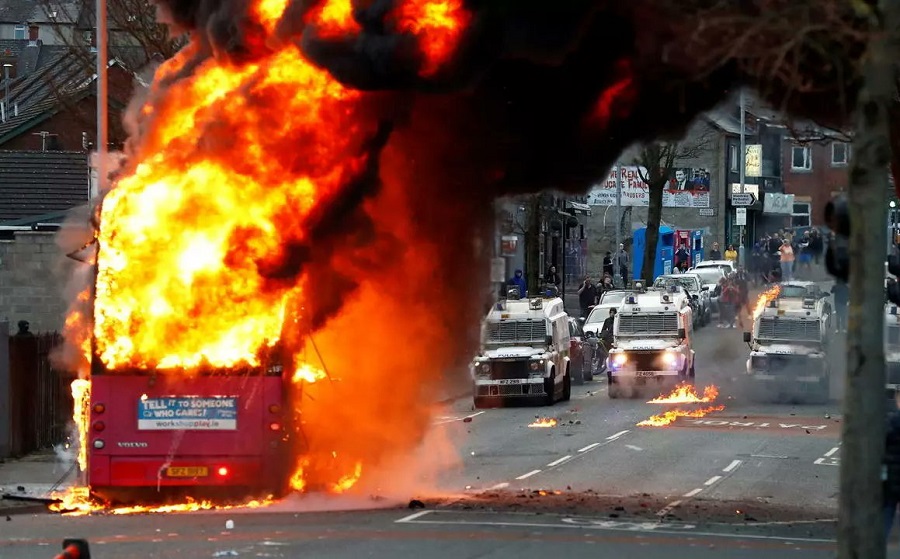
(originally published on June 24th 2016, in Italian, here)
by Giovanni Rosciglione
I want to say it with my own words, what I feel, how I judge this day – June 23rd 2016. A day that, I fear, we will have to explain to our children and our grandchildren. And I hope we will be able to.
What would Winston Churchill think at the sight of the Disuniting Kingdom? A United Kingdom becoming disunited and disuniting.
Let me introduce a team of eleven men on the field: Konrad Adenauer, the first Chancellor of the Federal Republic of Germany; Altiero Spinelli, Italian antifascist intellectual; Robert Schuman, French Foreign Minister between 1948 and 1952; Paul-Henri Spaak, Belgian politician; Jean Monnet, French politician and economic adviser; Walter Hallstein, fervent European and supporter of integration; Sicco Mansholt, the first European Commissioner for Agriculture; Alcide De Gasperi, last PM of the Kingdom of Italy and first of the Republic of Italy; Winston Churchill, British Premier during the Second World War, Johan Willem Beyen, banker and politician; Joseph Bech, Luxembourger politician and lawyer.
These are the men who, in the aftermath of the end of the Second World War, took the initiative to open a path to build Europe.
Europe as something different from existing nation states, but held together by culture, values, progress.
Those eleven men were – and are – a good team: liberal, social democratic, Catholic, secular and Protestant cultures united, with a love for democracy and aware of what peoples were leaving behind.
What does a Disuniting Kingdom and a divided Europe mean?
Perhaps today we do not think enough about why, after two world wars.
World wars, that is, involving America, Asia, Africa, Australia. And it was only Europe that believed it was right to discuss and profoundly change the state, economic, social and cultural aspect of the Continent.
It is not difficult to understand. We have deliberately removed it.
It was precisely in Europe – the millennial custodian of art, culture, progress, democracy – that the immoral spirits of violence, selfishness and nationalism had come out into the open – twice – between 1914 and 1945, causing a massacre never seen before in history. And nearing the extinction of humanity.
Yes, the extinction of humanity, if we think about the nuclear risk we have run. In Europe and not only elsewhere.
It is therefore clear that the underlying reasons to build the European Union were not – and are not – the markets or the monetary policy. These are necessary, useful, indispensable tools for achieving the main goal that those eleven men wanted to achieve.
A Europe protected from nationalisms, selfishness, economic and territorial disputes, vaccinated against totalitarianism, against the fear of the different, against the zealous care of borders as “places of identity”. A Europe that exalted the history that united and unites its peoples.
Britain – as Churchill knew well – was and should have been part of that new continental nation, and not only because, by a near-miracle, it had not suffered the Nazi invasion. But beacuse stable and long-lasting peace and progress was achievable only by uniting Europe.
Brexit and the future of the European Union
Today we face a fait accompli by the vote of the British people, imprudently called to judge without the true elements and reasons of the Union: prey to irrational drives and fears.
I do not know – and perhaps no one yet knows – what consequences this choice will have and to what extent people, and especially the weakest part of them, will suffer.
I certainly know that, either we pick up the thread of that great project, Europe, or our generation – and especially our ruling class – will have to explain the reasons for their tragic failure to guarantee peace and prosperity for young people and future generations.
On cover, riots in Northern Ireland, April 2021.
Translation and editing by Gabriele Bonafede.

 Evitato il panico, ma la recessione negli Stati Uniti rimane probabile
Evitato il panico, ma la recessione negli Stati Uniti rimane probabile  The best way to tackle US higher tariffs is lower tariffs everywhere
The best way to tackle US higher tariffs is lower tariffs everywhere  Dazi di Trump: una catastrofe annunciata
Dazi di Trump: una catastrofe annunciata  “Emilia Perez”, storia di una trasformazione tra Messico e passione
“Emilia Perez”, storia di una trasformazione tra Messico e passione  Conclave. Ogni papa è eletto da cardinali, ovvero uomini
Conclave. Ogni papa è eletto da cardinali, ovvero uomini  Flow. Dalla Lettonia un lungometraggio animato riscalda il cuore
Flow. Dalla Lettonia un lungometraggio animato riscalda il cuore 